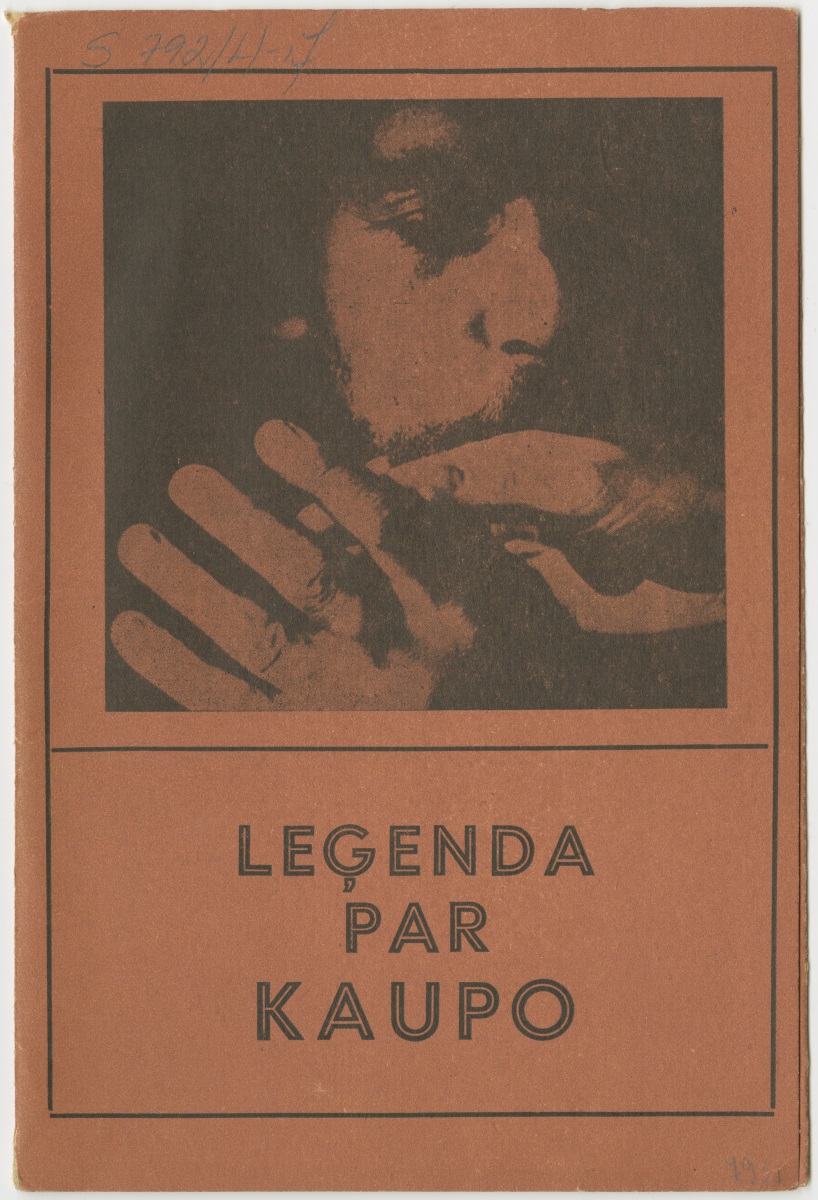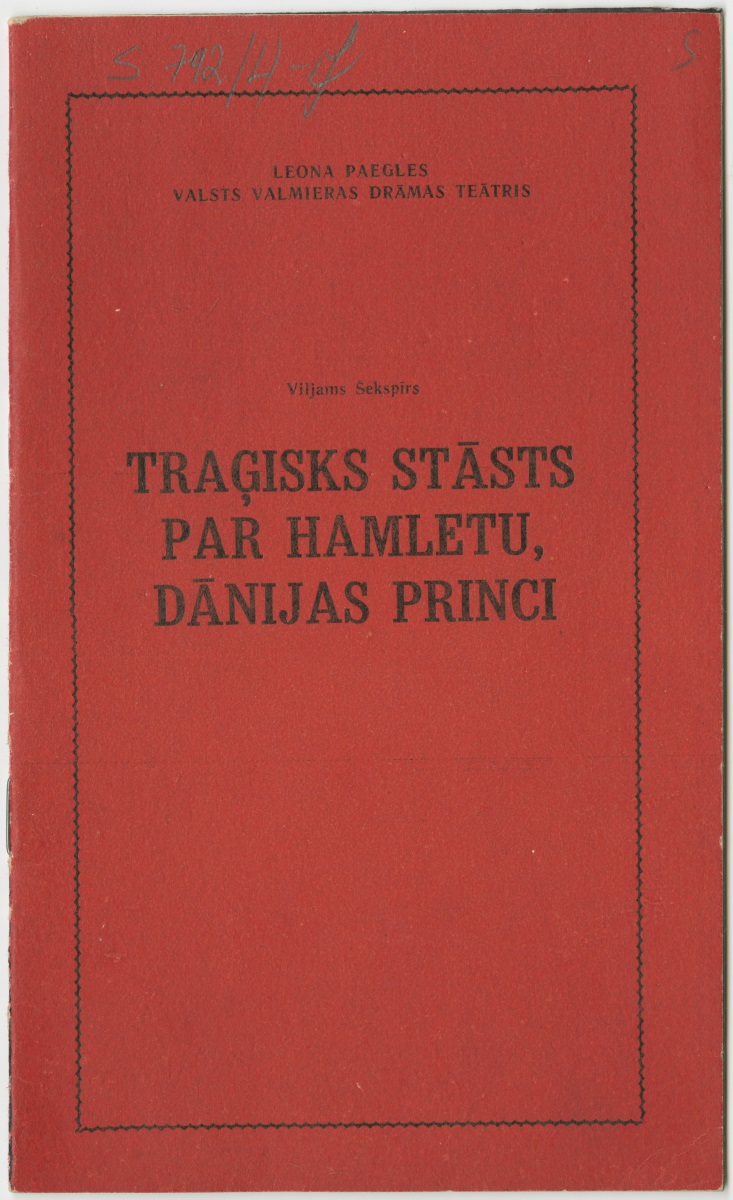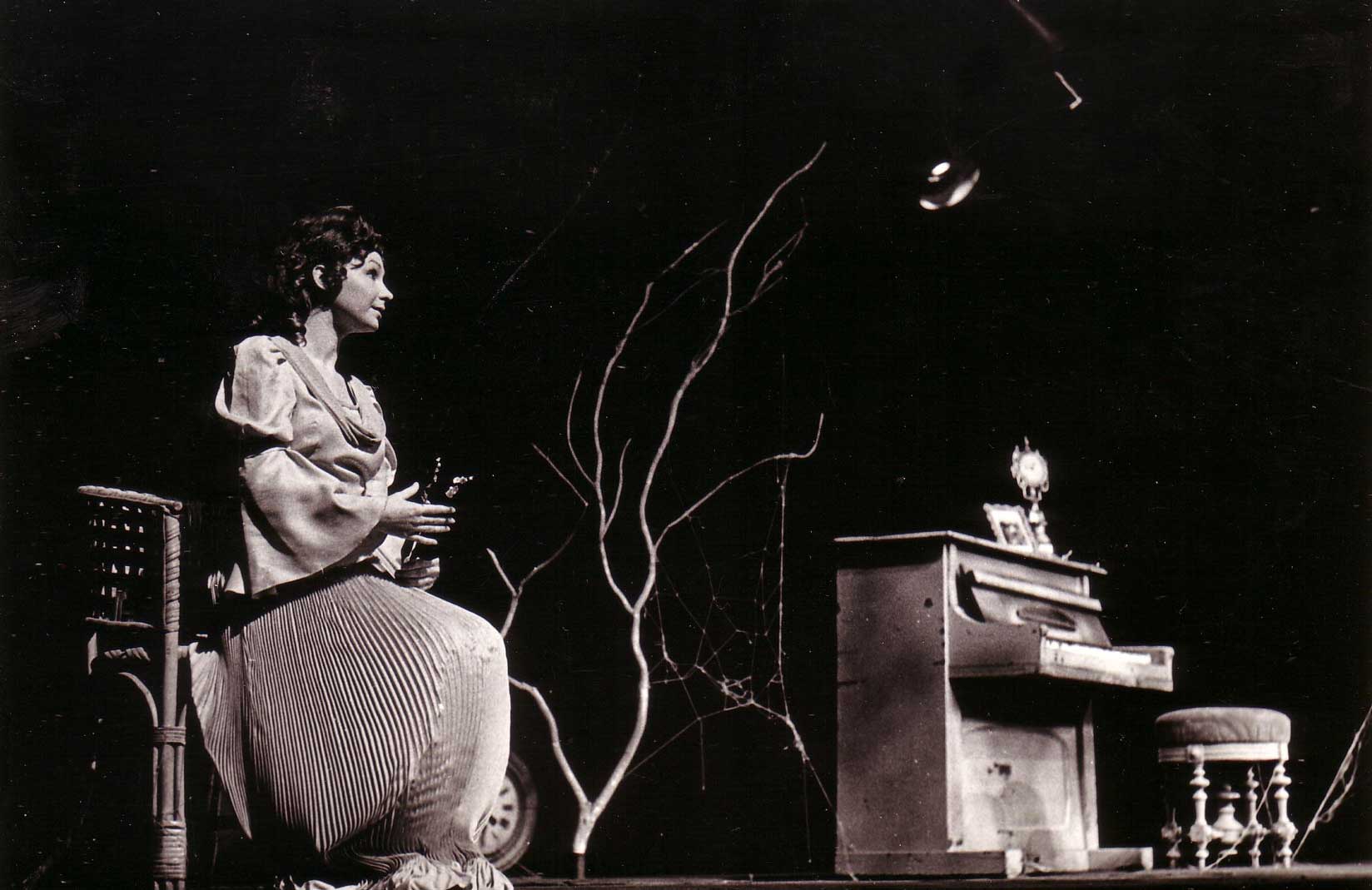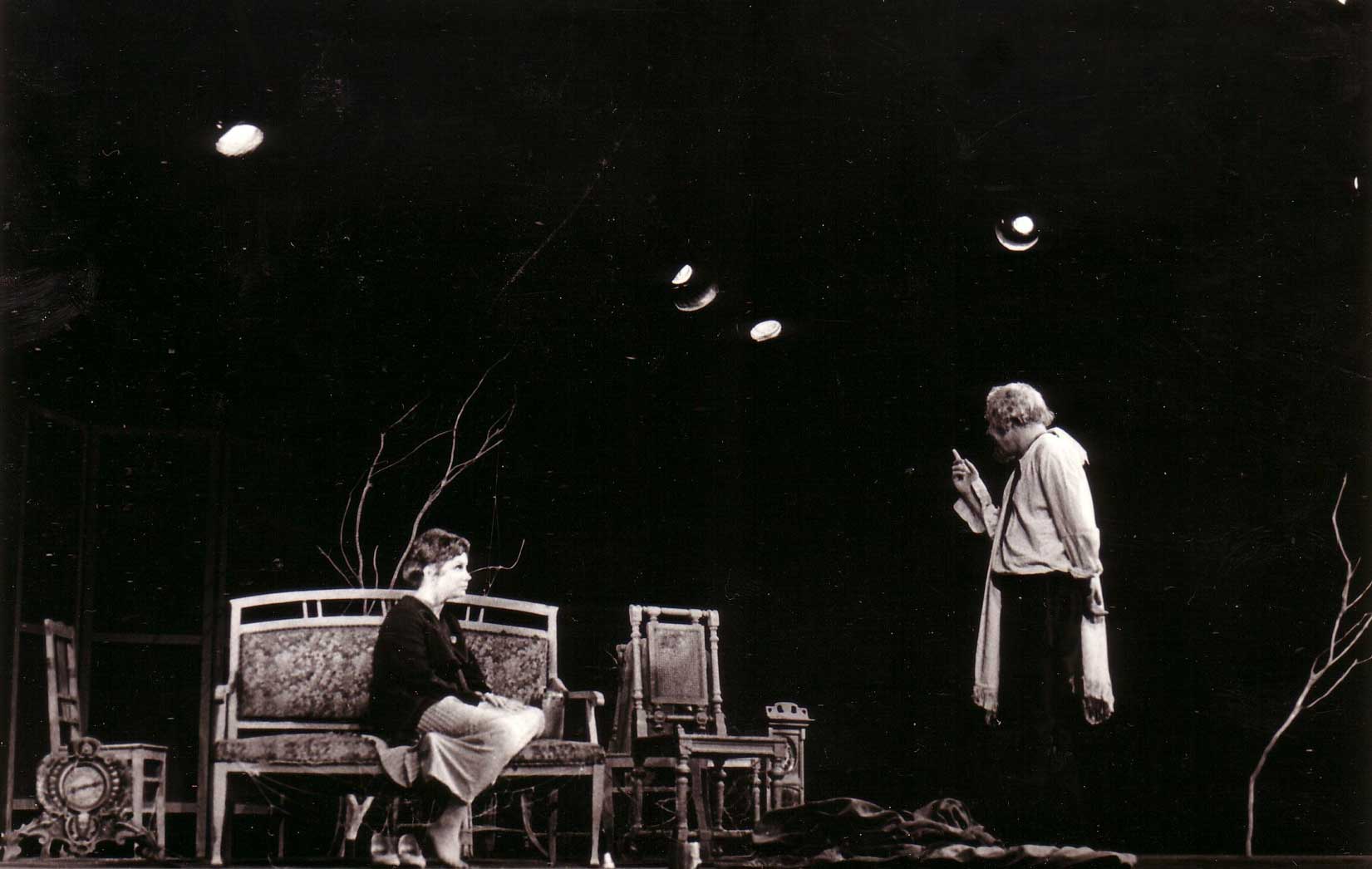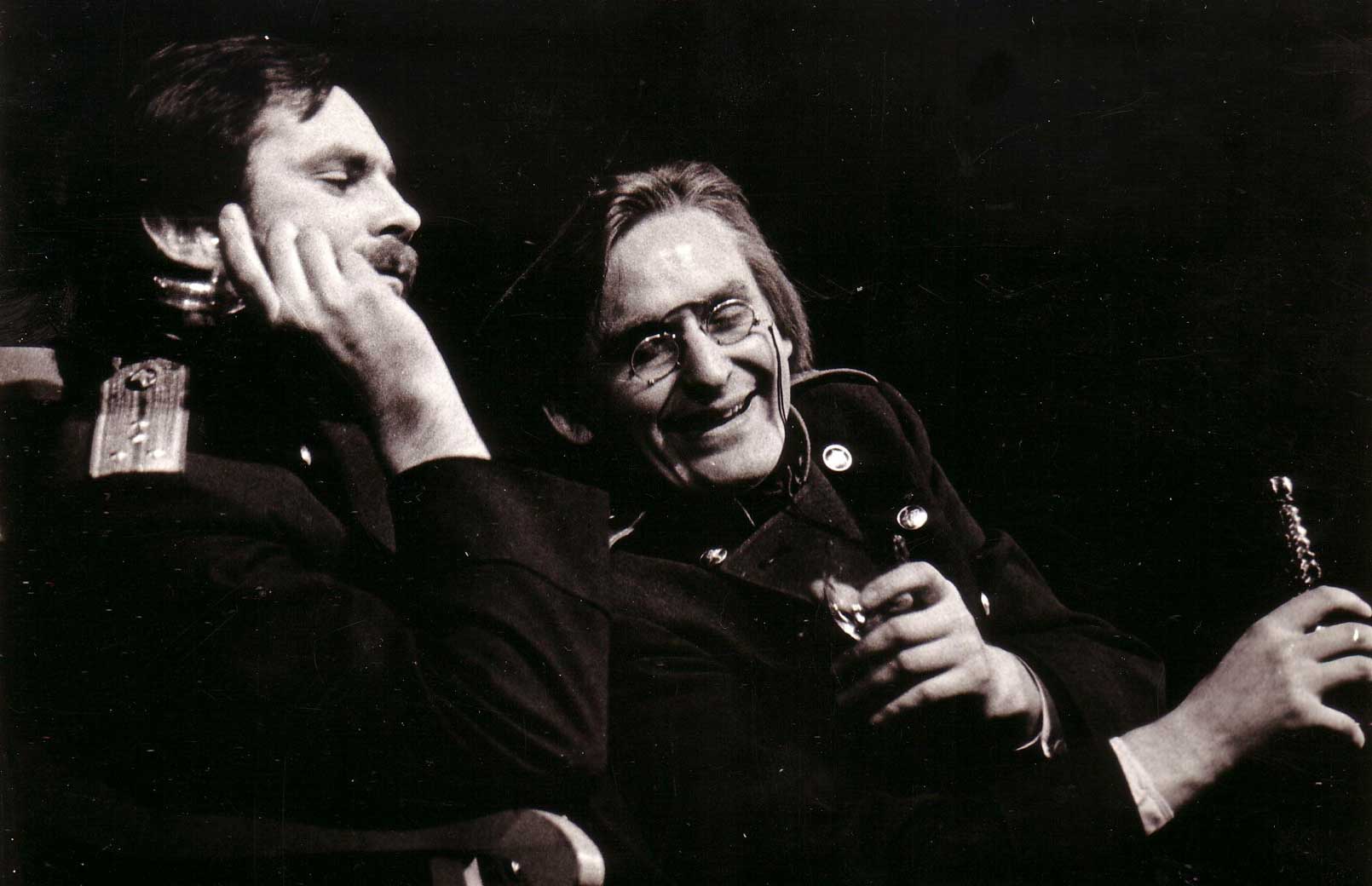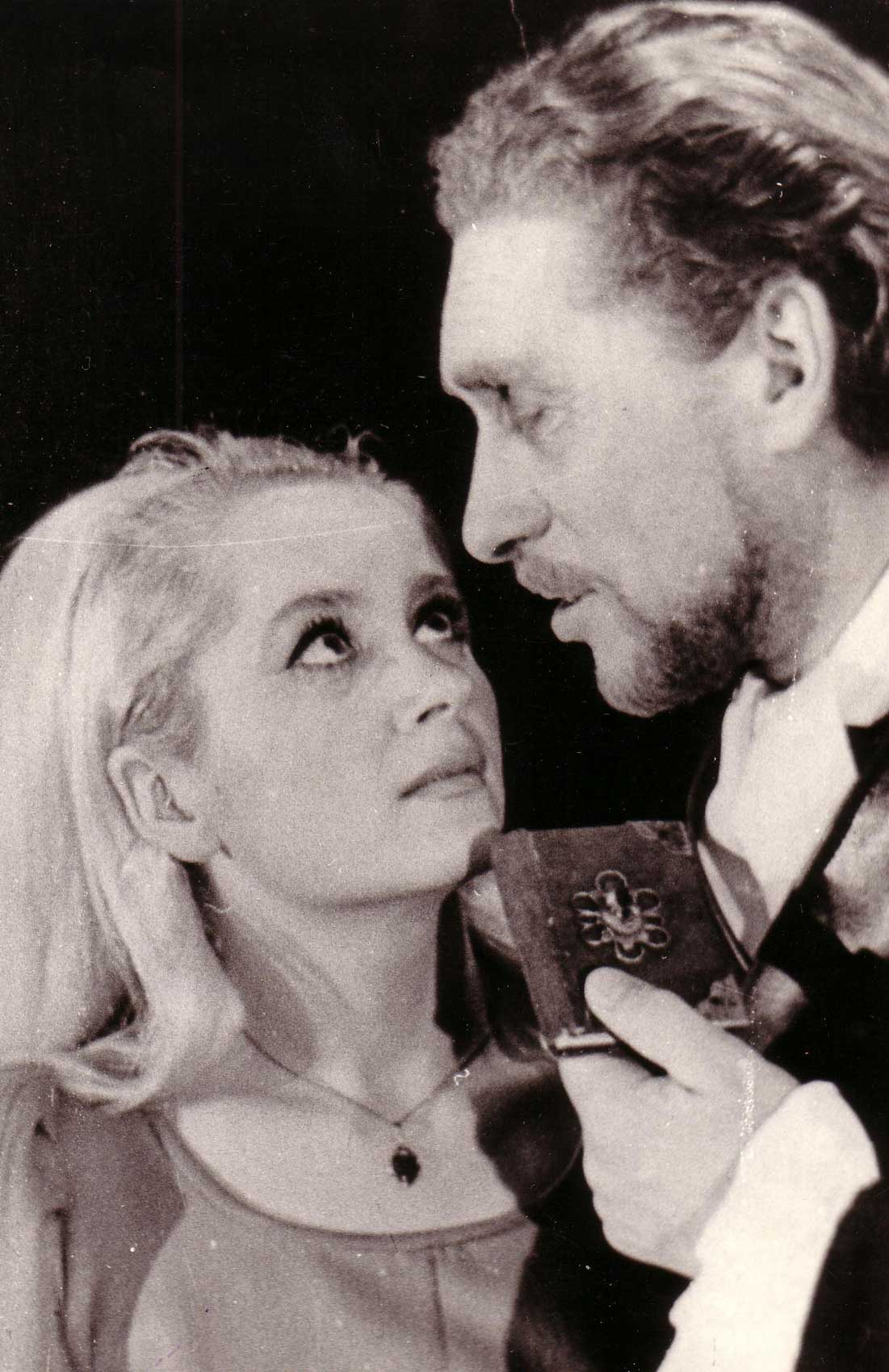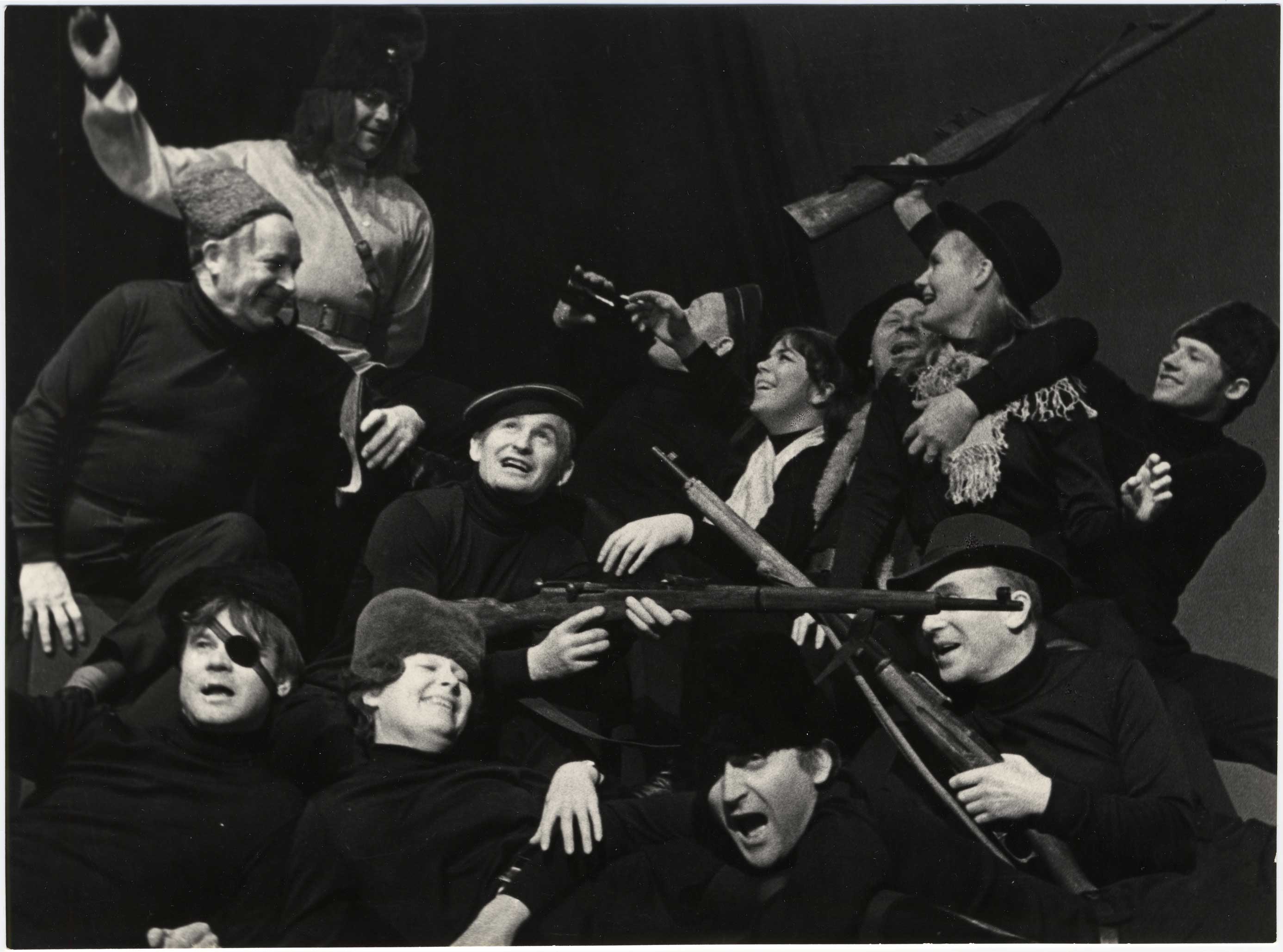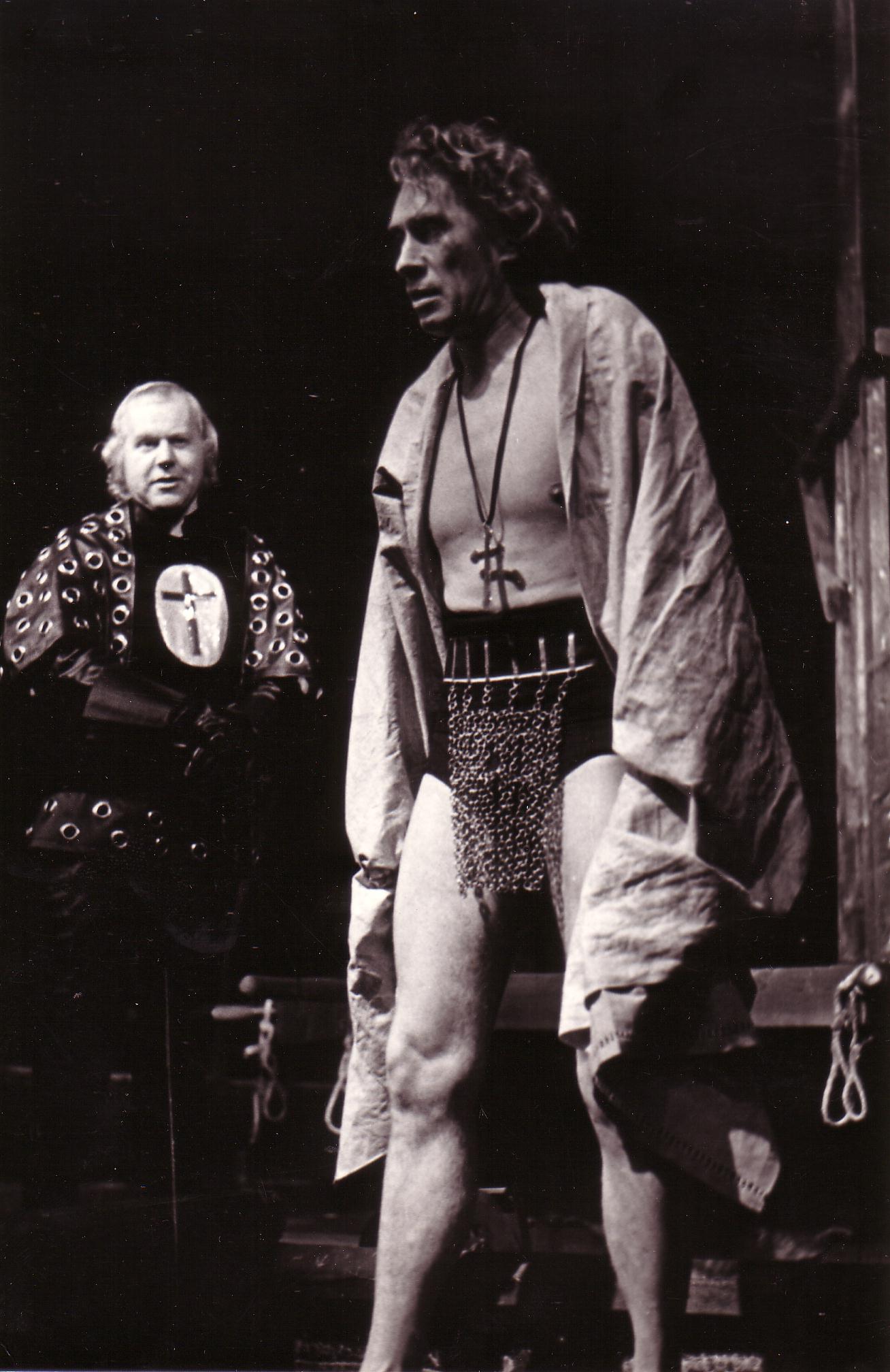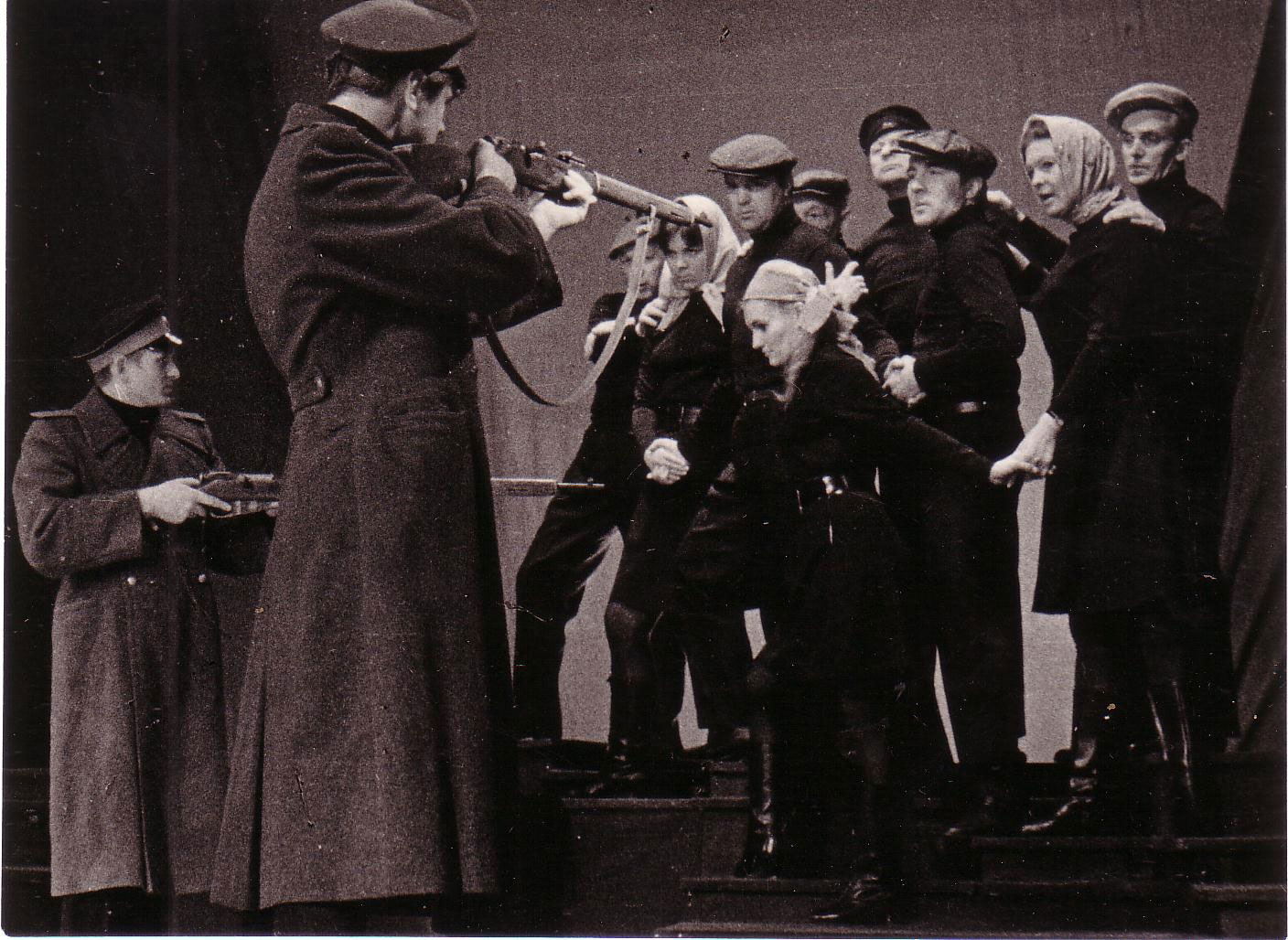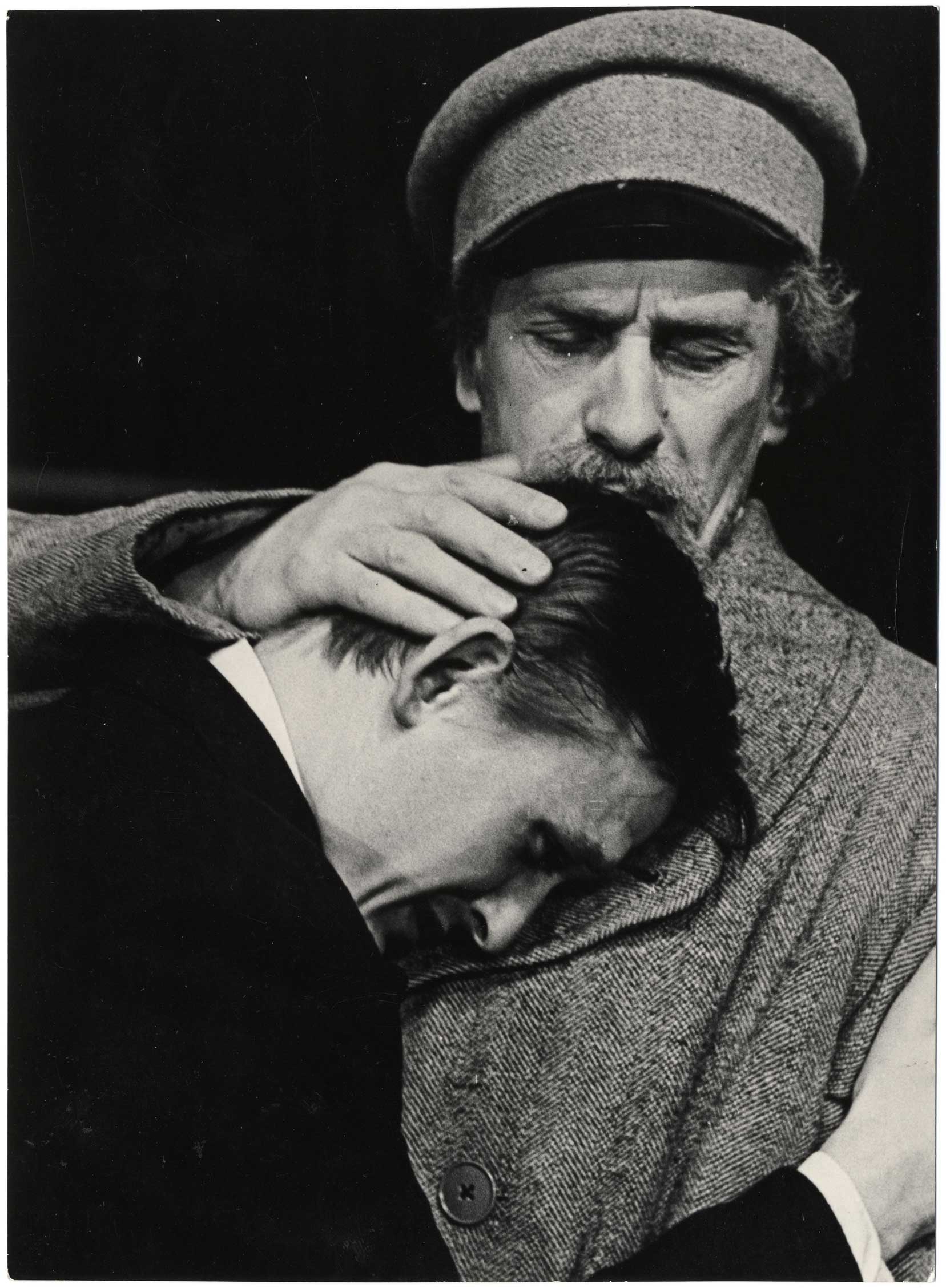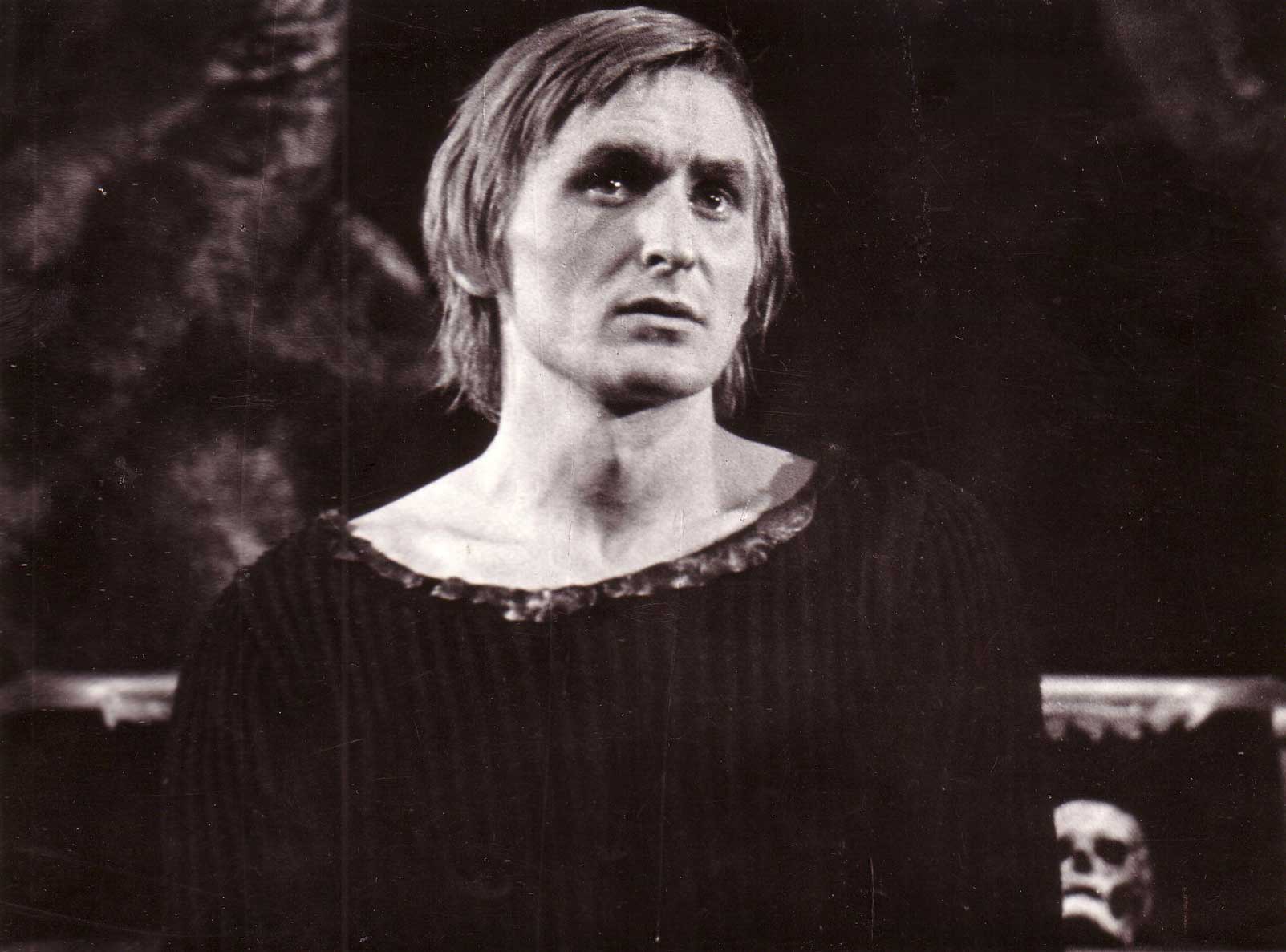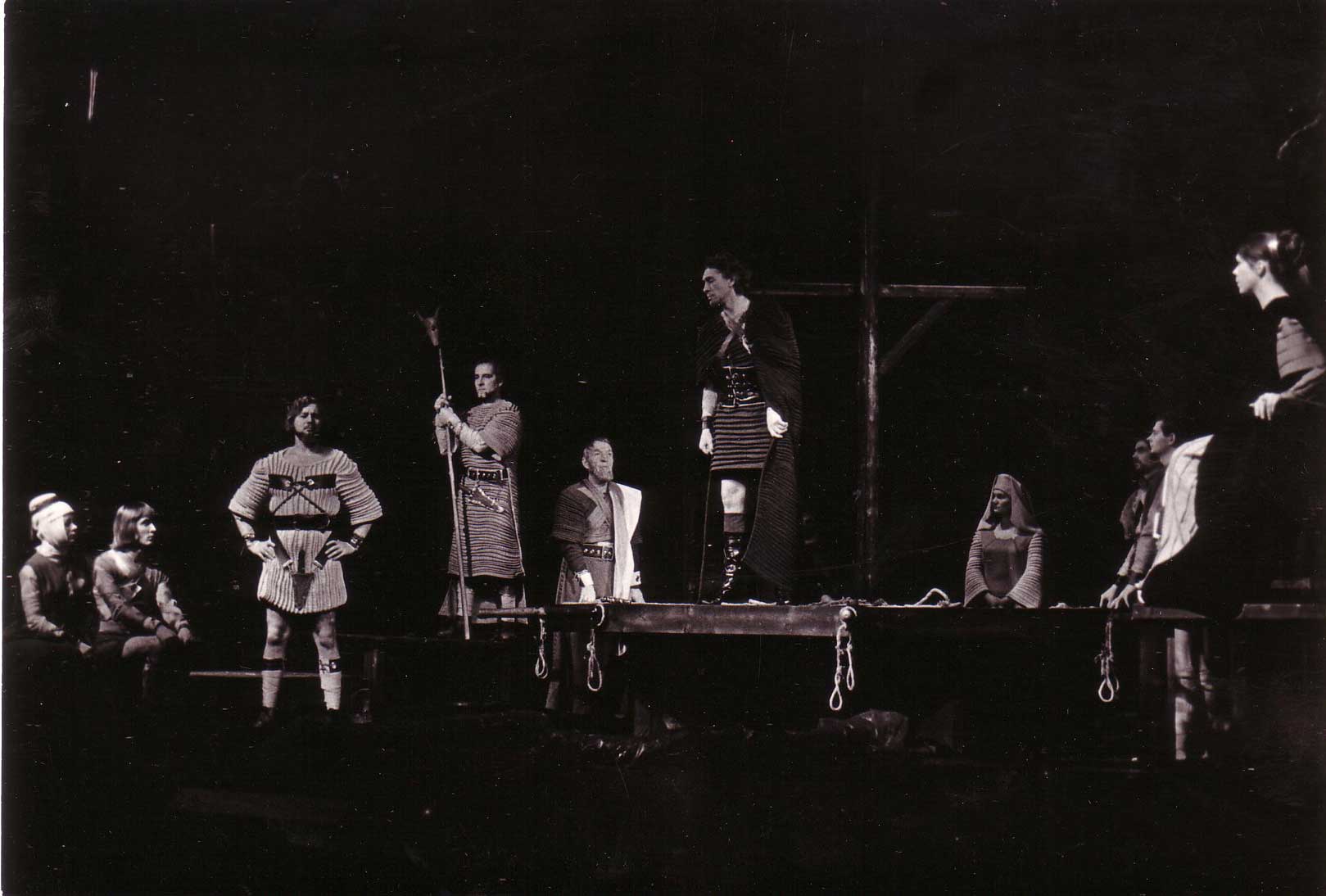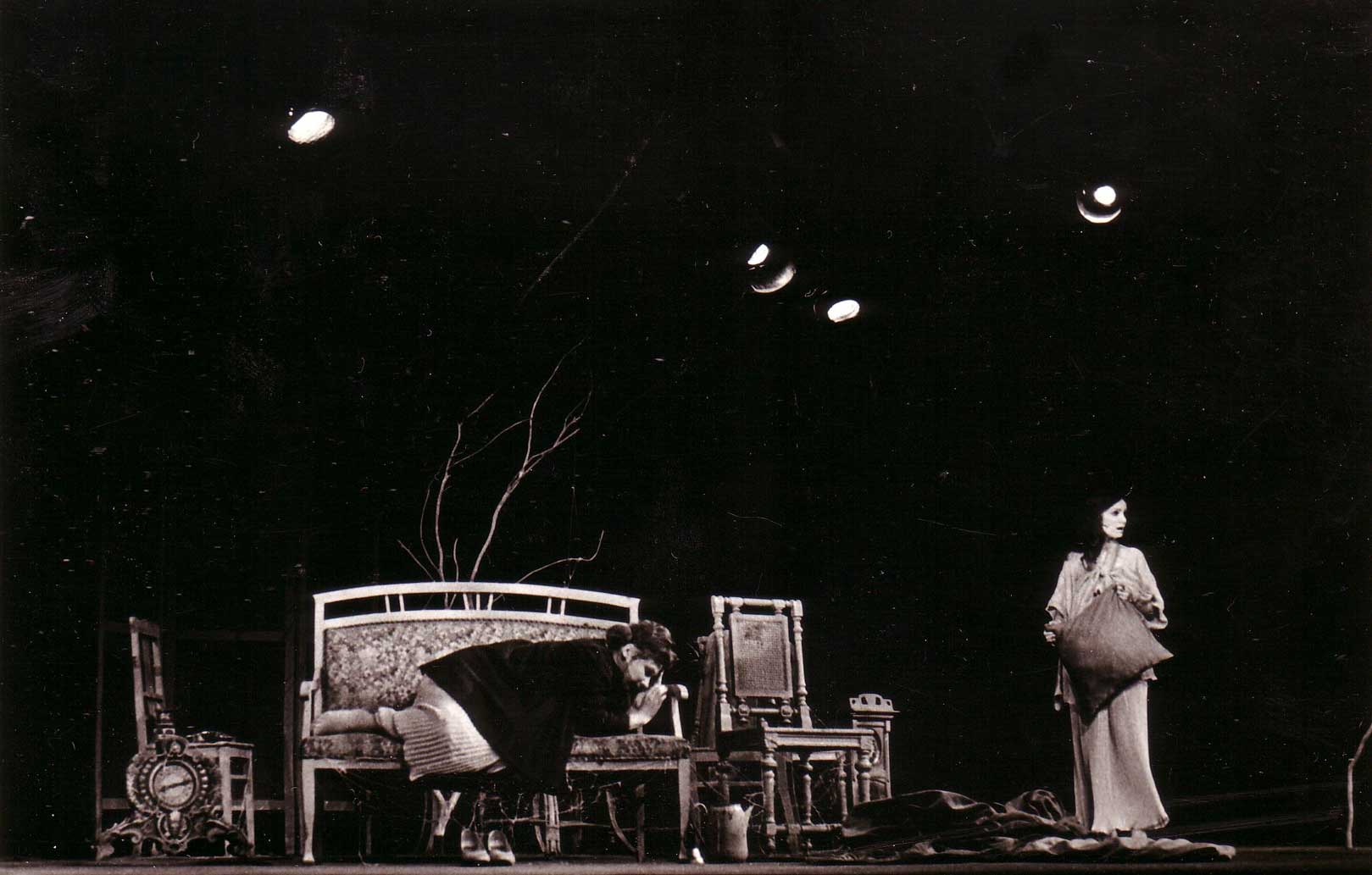”The only thing that truly worries me is violence,” the famed theatre director Oļģerts Kroders said in a 2006 interview. One is not surprised to hear this from a man who was deported to Siberia at a tender age and spent his youth and early maturity witnessing every manner of calamity. Thanks to, perhaps, a combination of luck, tenacity and a severely detached outlook, Kroders was able not only to survive but also return to the theatre 15 years later. In the 1970s, he set up the “associate theatre” in Valmiera, northern Latvia. It was one of the best-acclaimed troupes ever in Latvia, characterised by non-hierarchical relations and a free-thinking, democratic spirit. Nowadays, Kroders lives on as a byword for excellence in Latvian theatre – an annual theatre award named after him carries his legacy since 2014.
Initiated to the theatre at a very early age by his father, the drama critic Roberts Kroders (1892–1956) and his mother, the actress Herta Krodere (1891–1943), Kroders started “directing” when he received a cardboard child’s theatre for his seventh birthday.
He never had the chance to receive an all-round drama education, however. On June 14, 1941 his family was deported to Siberia by the Soviets in an apparent mix-up between his family and that of his uncle, a prominent anti-communist politician. Kroders wryly noted that, as a theatrical gesture, he impractically donned his best suit when Soviet functionaries arrived to take them to the faraway north in wooden rail wagons. In Siberia, Kroders staged his first real productions with an amateur troupe of both fellow deportees and locals.
There, Kroders read any drama theory he could get his hands on, and his reading habits did not die down after he returned in 1956. As a former deportee, he was barred from working in the capital; the director Eduards Smiļģis nevertheless took him on as a director’s assistant at Rīga’s Dailes Theatre, also included in the Latvian Culture Canon.
Kroders staged his first professional productions at the Liepāja Theatre, mastering the ropes of directing for the first five years (1959–1964) he spent there and, incidentally, working with Uldis Pūcītis (1937–2000), an actor and a veritable icon of masculinity included in the Canon and known for his role in the film “Four White Shirts” (Četri balti krekli, 1967) in which Kroders starred too.
In 1964, Kroders studied in Moscow at the High Courses for Directors. While there, he saw the most innovative productions of Russian theatre and Western guest performances, including Peter Brook’s (1925) take on “King Lear”, which greatly affected the way Kroders would interpret classic plays. That is something he would end up doing throughout his career. Out of the 136 productions Kroders directed professionally, about half can be considered classics, and he famously directed Shakespeare’s “Hamlet” four times – in 1972, 1984, 1997 and 2008 – consistently interpreting the play in contemporary terms and focusing it on the corruptive effects of power and what people can do about it. Kroders’ stage adaptations of “Hamlet” are the subject of a 2009 documentary, “The Fifth Hamlet” (Piektais Hamlets).
In 1964 Kroders started working at Valmiera Theatre. Within ten years, he managed to create a closely knit troupe of associate actors from the younger and middle-generation cadre. His creative collective, in which absolute trust in one another was paramount, worked hard to generate subtexts, promoting critical thinking under the stifling Soviet occupation.
Following the ten years he spent with the associate theatre, Kroders continued to be very productive. Kroders worked at the Liepāja Theatre (1974–1989) and then had a stint at the Latvian National Theatre (1990–1995). While his return to Valmiera Theatre in 2001 saw an outburst of creativity unprecedented for an octogenarian director: living inside the actual theatre premises, he directed 19 plays until his death in 2012, becoming a frequent nominee and recipient of the annual Spēlmaņu nakts theatre award for his late works.
His legacy lives on in the aforementioned Kroders Award; in addition, a number of actors and directors, among them Māra Ķimele (1943), also included in the Canon, have profited professionally from his work and methods. Kroders is remembered very fondly. Actor Rihards Rudāks (1943) recalls: “He was an attractive, humorous personality that made you want to be close to him. Another quality of his: he worked out the production but was nevertheless able to sort of stay in the shadows, as if the actors had done everything themselves. It’s deceit, but it’s very pleasant.”
Kroders’ influence is not confined to the theatre: his memoir, “I’m Trying to be Honest” (Mēģinu būt atklāts, first published 1993) can be seen as a contribution to literature about interwar Latvia and the fates of Latvians deported to Siberia. Curiously, it also reveals Kroders to be rather alienated from his surroundings even prior to being taken away, with truer passions evidently reserved for the stage.
“To be honest, everything is serious and funny all at once. I don’t know what this feeling is called,” Kroders summed up late in life.
Lauris Veips

